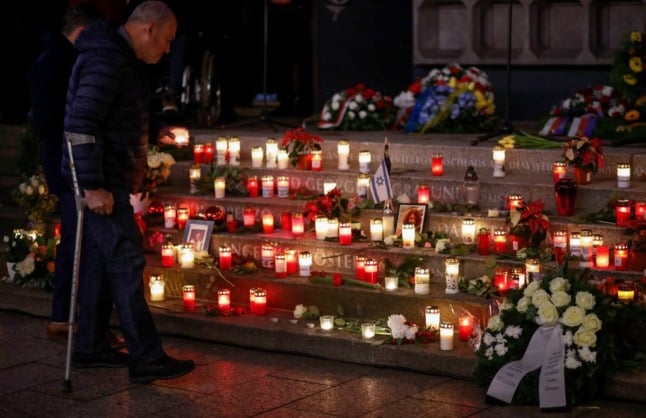Carried out by 24-year-old Tunisian Anis Amri and claimed by the so-called Islamic State (IS) group, the attack on December 19th, 2016 killed 12 people and left dozens injured.
A 13th victim died this year having suffered serious injuries in the assault.
Chancellor Olaf Scholz said the events were “etched in our collective memory” and shared his condolences with the families of the victims in a statement ahead of the memorial.
In Gedenken an die Opfer des Terroranschlags vom #Breitscheidplatz am 19. Dezember 2016. pic.twitter.com/WA5A45KxoP
— Steffen Hebestreit (@RegSprecher) December 19, 2021
The anniversary will be marked with a ceremony beginning at 18:45 local time with a speech by President Frank-Walter Steinmeier.
The tributes will take place at the Kaiser Wilhelm Memorial Church, whose bell tower, partially destroyed in World War II, overlooks the Breitscheidplatz square where the attack took place.
The church’s bells will ring at 20:02, the exact time when the truck drove at full speed into the Christmas market.
The friends and family of the victims, who are expected to attend the ceremony, this week addressed an open letter to Scholz.
They urged the government to authorise further investigations into the individuals responsible for ordering and abetting the attack, an element they say has been under-explored.
On the run for four days after the attack, Amri was eventually located and shot down by police in Italy.
“The Breitscheidplatz attack still raises a number of questions that have not been sufficiently answered in my opinion,” Vice Chancellor Robert Habeck said on Friday.
Different inquiries highlighted errors in the surveillance of Amri, who arrived in Germany in 2015 and was quickly identified as a potentially dangerous Islamist and a drug trafficker.
The German authorities remain on alert over the threat of further attacks. Since 2000, law enforcement has foiled 23 such attacks, the interior ministry said in September.
There are currently 554 individuals in Germany considered to be dangerous Islamists, according to police.
IS also claimed responsibility in 2016 for a knife attack in Hamburg, a bombing in Ansbach that injured 15 people and an axe attack in Bavaria where five were hurt.
None of the assailants came to Europe carrying orders from IS, according to authorities. All of them seem to have organised their actions alone, sometimes under the influence of mental disorders.




 Please whitelist us to continue reading.
Please whitelist us to continue reading.
Member comments